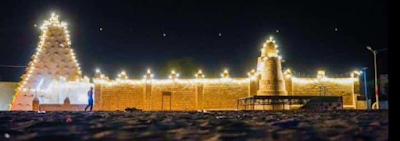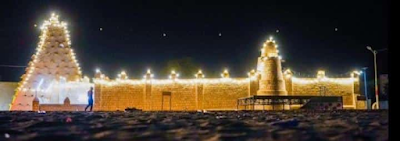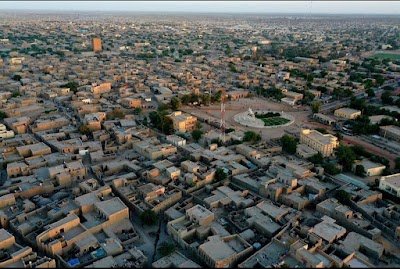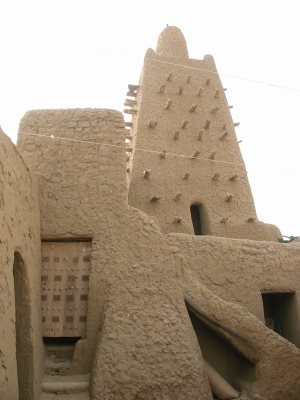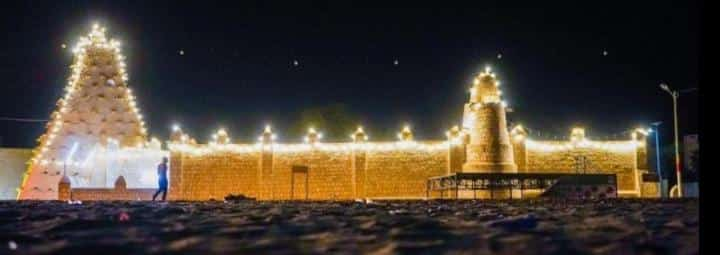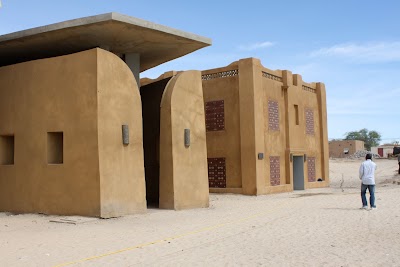City of Timbuktu (مدينة تمبكتو)
Overview
Welcome to the enchanting city of Timbuktu, nestled in the Tombouctou Region of Mali. This destination ignites the imagination with its tales of ancient grandeur and desert mystique. Once regarded as a far-off locale, Timbuktu is now a treasure trove of history and culture, eagerly awaiting the modern traveler to explore its myriad wonders.
Founded in the 5th century, Timbuktu evolved from a modest seasonal settlement into one of Africa's most significant cities. Its transformation peaked in the 14th and 15th centuries, when it emerged as a beacon of Islamic learning, trade, and scholarship. As a flourishing trade hub, Timbuktu attracted merchants from across the Sahara, dealing in gold, salt, slaves, and exotic goods. Its strategic location at the crossroads of the vast Sahara Desert and the Niger River made it a melting pot of cultures and ideas.
One of the most remarkable aspects of Timbuktu is its legacy of education and scholarship. During its golden age, the city boasted the illustrious University of Sankore and numerous madrasas, which collectively drew scholars from all corners of the Islamic world. These institutions housed tens of thousands of manuscripts covering diverse subjects such as astronomy, medicine, mathematics, and theology. Today, many of these ancient manuscripts still exist, offering a priceless glimpse into Africa's rich intellectual heritage.
A visit to Timbuktu is incomplete without exploring its three magnificent mosques: Djinguereber, Sankore, and Sidi Yahya. These architectural gems, dating back to the city’s golden era, are striking examples of Sahelian architecture, characterized by mud-brick construction and wooden reinforcements. The Djinguereber Mosque, built by Mansa Musa, the Emperor of Mali, stands as an iconic symbol of Timbuktu and continues to serve as an active place of worship. These structures not only hold spiritual significance but also exemplify the architectural ingenuity of the region.
While these ancient edifices capture much of the attention, Timbuktu's lesser-known attractions also offer a rich tapestry of experiences. The Ahmed Baba Institute houses a significant collection of manuscripts, preserving the city’s written heritage. Here, travelers can delve into scientific works and religious texts, revealing the depth of knowledge that once made Timbuktu the intellectual center of Africa.
Despite its storied past, modern Timbuktu is a vibrant city facing contemporary challenges and adapting to change. The local population, predominantly Tuareg, keeps their culture alive, providing unique experiences for visitors. From traditional music and dance to intricate crafts and jewelry, the cultural expressions of Timbuktu’s residents are deeply rooted in their heritage. A visit to the local markets offers an immersion into daily life, showcasing handcrafted leatherwork and stunning purple-dyed Tuareg garments.
No discussion of Timbuktu would be complete without acknowledging the influence of the Sahara Desert that envelops it. The desert is not merely a backdrop but an integral part of the city's identity. Adventures beckon with promises of camel treks and visits to nomadic encampments, where one can experience the vastness and serene beauty of the desert landscape. These excursions often include traditional Tuareg hospitality, featuring mint tea and captivating tales of desert life, immersing visitors in the unique rhythm of this storied land.
For those with a passion for history, legend, and adventure, Timbuktu offers an unparalleled journey into the past and a front-row seat to witness the resilience of a city steeped in time. The mere name evokes dreams of exploration and discovery, and its reality does not disappoint. From the allure of ancient manuscripts to the majestic silence of the Sahara, Timbuktu remains an enigmatic jewel of Africa—a place where history lives on in every grain of sand and stone.
Come and uncover the secrets of Timbuktu, where the story of human endeavor and cultural confluence continues to inspire and captivate. Your visit will not only be an exploration of a historic city but also a journey through the epochs that have shaped the rich heritage of this legendary destination.


